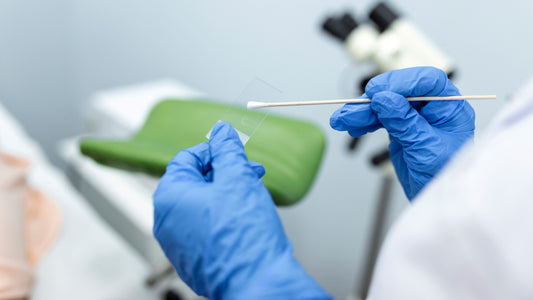What are the signs of cardiovascular disease in women? This is the number one question I’d like every woman to be asking this World Heart Day — because heart disease is the number one cause of death for women worldwide. And this devastating disease often looks different in women than in men.
Here’s the thing — we have so much control over our heart health. And I believe that with the right lifestyle changes and diet tweaks, we have the power to avoid heart disease 90% of the time.
So, I’d like to share some specifics with you about cardiovascular disease in women, and how to improve your heart health, quickly.
What Are The Signs Of Cardiovascular Disease In Women?
Heart disease symptoms in women can often be subtle. We sometimes call heart disease in women the “silent killer” because you just don’t realize you’re having problems with your heart health until it’s too late. Until something catastrophic happens.
I don’t want that to happen to you or anyone you love. And that’s why I’m so passionate about discussing women’s heart health.
Some women have almost no signs of heart disease before they have a heart attack. That’s the plain, scary truth of the matter.
But, here are some of the signs of cardiovascular disease in women that you shouldn't ignore:
- High blood pressure (ideally your blood pressure should be 120/80 or lower, without medication)
- High blood sugar
- Heart palpitations
- High heart rate (a healthy heart rate for a woman should be between 60-100 beats per minute at rest)
- Chest pains
- Numbness or feeling cold in your extremities
Some of the more subtle signs that you’re having trouble with circulation include:
- Dryness or decreased sensitivity in your vulva or vagina
- Decreased libido
Biggest Risk Factors For Heart Disease
Even if you don’t currently have any symptoms of heart disease (and remember, a lot of women never have symptoms of heart disease!), you still want to take note of the risk factors for heart disease. If you have one of these risk factors, it doesn’t mean you’re doomed. It just means you have to be extra careful about monitoring your heart health and taking great care of your body.
The risk factors for heart disease in women include:
- Smoking
- Diabetes
- Depression
- Excess weight
- Lack of exercise
- High-stress job or home life
- Having high blood pressure
- Excess alcohol consumption
- Family history of heart disease
- Polycystic ovarian syndrome (PCOS)
- Having high blood pressure during pregnancy
- Reaching menopause early (before the age of 45)
- Getting your first period early in life (before the age of 11)
- High blood sugar during pregnancy (gestational diabetes)
- Preterm delivery of a baby, or delivery of a baby with low or high birth weight
It’s important to note that menopause itself is also a heart disease risk factor for women. (1) When estrogen levels drop, women are at an increased risk of developing heart disease.
What Are The Signs Of A Heart Attack In Women?
Sometimes, the signs a woman is having a heart attack are subtle, certainly more subtle than they typically are in men. This is why we need to pay particular attention to women’s heart attack stories. They don’t always paint a picture of someone clutching their chest in intense pain.
In fact, women’s heart attack symptoms can manifest when they are resting or even asleep.
Some of the common heart attack symptoms for women include:
- Chest pain (can be in the center or left side of the chest)
- Chest “discomfort” or feeling pressure, fullness, or squeezing in the chest
- Feeling pain or discomfort in one or both arms
- Pains in your shoulders
- Pains in your jaw
- Discomfort or pain in the neck
- Nausea
- Vomiting
- Fatigue
- Shortness of breath
- Pressure or pain in the upper back
- Flu-like symptoms
- Feeling “full”
- Cold sweats
- Weakness
- Fast heart rate (over 100 beats per minute at rest)
It’s important to familiarize yourself with these women’s heart attack symptoms — so if you start to experience them you can call 911 immediately. Also, be on the lookout for complaints about these symptoms from other women in your life so you can help them get the medical care they need quickly.
Male Vs Female Heart Attack Symptoms
Just like with men, the most common sign of heart attack in a woman is still chest pain or pressure. Yes, women also may experience some of the less common heart attack symptoms I discussed earlier, but they can also have classic chest pains just like men.
Men often present with what we think of as “normal” heart attack symptoms, like:
- Pressure in the chest
- Shortness of breath
- Nausea
- Dizziness
How To Improve Heart Health Quickly
So, maybe you’ve just had your blood pressure taken and it’s higher than the target of 120/80. Or you’ve gotten your blood work back and your cholesterol is high.
Your doctor may prescribe you medication to treat these symptoms. But a lot of women don’t realize there’s so much more you can do to make improvements to the underlying foundation of your heart health. Medications will only treat the symptoms, but won’t improve your heart health. Plus, sometimes medications like statins cause unpleasant side effects like muscle aches and brain fog.
Adding in some lifestyle changes and tightening up your diet can make a huge difference in your entire life — from increasing your energy to lowering your blood pressure and blood sugar. And yes, I’ve even seen women improve heart health in 30 days when they buckle down and make the changes I’m outlining here!
Just to be clear, once you have coronary artery disease, it can be very difficult to get rid of the plaques clogging your arteries. (2) Prevention is the best policy when it comes to heart health.
Diet And Nutrients
Heart health for women really and truly starts with what you put on the end of your fork.
When you eat lots of vegetables, low-glycemic fruits, and fiber — you support healthy blood circulation, and diversity in your microbiome. Which means your entire body benefits.
When it comes to women and heart disease, it’s important to note that women with diabetes are more likely to develop heart failure than men. (3) So it’s extra crucial to manage your diet and your blood sugar levels.
It’s also important to make sure you’re including those veggies in your diet to make sure you’re getting enough magnesium and potassium which are critical nutrients for heart health.
Omega 3s are also nutrients known to support heart health. These are fatty acids found mostly in cold water fish, walnuts, and flax seeds. Research indicates consumption of Omega 3s can help support your cardiovascular system. (4) But sometimes, eating fish the multiple times per week required to get in those Omega 3s just isn’t practical. And some people just don’t like fish. That’s when a high-quality Omega 3 supplement like my Omega Goodness can come in handy.
I’ve said for years that the most important thing to avoid when it comes to heart health is sugar. And the research keeps stacking up — showing that sugar is dangerous for heart health. A recent study found that people who eat more added sugar are at higher risk for heart disease and stroke. (5) This echoes the 2014 study that followed people over the span of 15 years — and showed people who ate more added sugar had a 38% higher risk of dying from cardiovascular disease compared with those who ate less. (6)
Want some help getting your diet off to a heart-healthy start? All of my books, MenuPause, The Hormone Fix, and Keto-Green® 16 are chock full of delicious recipes that will transform your heart health. Click here to grab them.
Exercise
Exercise is another critical piece of the heart-health puzzle. Both high-intensity cardio exercise and strength training should be a part of your daily routine!
Why?
Exercise is like a magic pill for your blood sugar, your blood pressure, your mood, your brain, and your sex hormones. When you exercise, it strengthens your heart muscle and helps reduce the build-up of plaque in your arteries. Which in turn puts you at lower risk for heart disease. (7)
And building muscle with strength training about 30-60 minutes a week puts you at lower risk for heart disease and cancer, too. (8)
Don’t forget, after you complete your strength training session, it’s important to have some protein afterward for best results. (9) If you want the cleanest, most delicious protein shake on the planet, be sure to check out my Keto-Green Protein Shake.
Stress Management
Stress is one of those things that affects your health — but it’s also something that most people just accept as part of everyday life.
However, I’d urge you to start thinking differently about stress. Because the science says stress is linked to heart disease. (10,11) And it’s certainly not good for the rest of your body, either.
You may know that my favorite hormone is oxytocin. And that’s because it’s so powerful at putting a stop to the negative effects of stress in the body. (12)
Here’s the best part about oxytocin: you just have to prioritize doing things you enjoy in life to start making more of it (and reaping those anti-stress benefits).
Think things like:
- Laughing
- Hugging
- Hobbies
- Exercise
- Meditation
- Simply hanging out with loved ones
Are you getting enough of those oxytocin moments in your life to counteract the effects of stress on your heart? Take my oxytocin quiz here and find out!
Gut Microbiome
It’s becoming more and more clear that the health of your gut microbiome affects the health of your whole body — including your heart. (13,14)
And yes, we already touched on the importance of diet for heart health earlier, but food really is critical for keeping your gut microbiome in tip-top shape.
When it comes to the gut, fiber is king! And the best way to make sure you’re getting enough microbiome-friendly probiotic and prebiotic fiber is to eat a wide variety of vegetables — and lots of them! This is one of the ways my signature Keto-Green® diet positively shines.
Get started on building a healthy gut microbiome and show your heart some serious love with my free Keto-Green® recipe book here.
Show Your Heart Some Love
I hope this World Heart Day and every day, you remember to take extra special care of your heart.
And please, share this article with all of the women in your life — you never know who may need to hear this information!
References
- https://www.ahajournals.org/doi/10.1161/CIR.0000000000000912
- https://jamanetwork.com/journals/jama/fullarticle/188274
- https://www.ncbi.nlm.nih.gov/pmc/articles/PMC6677875/#:~:text=Type%201%20diabetes%20was%20associated,failure%20in%20women%20than%20men.
- https://www.thelancet.com/journals/eclinm/article/PIIS2589-5370(21)00277-7/fulltext
- https://bmcmedicine.biomedcentral.com/articles/10.1186/s12916-022-02712-7
- https://jamanetwork.com/journals/jamainternalmedicine/fullarticle/1819573
- https://www.nhlbi.nih.gov/health/heart/physical-activity/benefits
- https://bjsm.bmj.com/content/56/13/755
- https://www.jospt.org/doi/10.2519/jospt.2018.0615
- https://www.ncbi.nlm.nih.gov/pmc/articles/PMC2633295/
- https://www.ncbi.nlm.nih.gov/pmc/articles/PMC7603890/
- https://pubmed.ncbi.nlm.nih.gov/15834840/
- https://www.thelancet.com/journals/ebiom/article/PIIS2352-3964(20)30024-4/fulltext
- https://www.ncbi.nlm.nih.gov/pmc/articles/PMC5390330/



